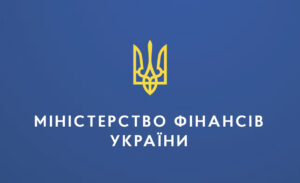
Travelers paid 338.4 million hryvnia in tourist tax for January-November 2025, which is 35.4%, or 88.4 million hryvnia, more than in the same period of 2024, according to the State Tax Service of Ukraine (STS).
According to data published on the agency’s website, Kyiv and Lviv region remain the most visited tourist destinations among the regions, together receiving almost 40% of the total amount of tax: Kyiv provided 68.8 million hryvnia in revenue, and Lviv region provided 61.6 million hryvnia.
A significant portion of the tax also came from the Ivano-Frankivsk region (UAH 45.6 million) and the Zakarpattia region (UAH 30.4 million).
“The holiday season is the peak load on the infrastructure of cities and communities. The tourist tax is an important source of revenue for local budgets, with funds directed towards the development of tourist infrastructure, improvement of territories, support for cultural and festive events, and improvement of services for visitors to the regions,” the State Tax Service noted.
The State Tax Service reminded that the tourist tax is paid by Ukrainian citizens, foreigners, and stateless persons as an advance payment before temporary accommodation in places of residence.
Tax agents are business entities that provide temporary accommodation services (hotels, hostels, holiday homes, etc.), and they transfer the collected funds to the local budget. The list of such agents is published on the websites of local councils.
The rates of the tax are set by local councils for each day of stay at up to 0.5% of the minimum wage for Ukrainian citizens and up to 5% for foreigners.
Persons/children with disabilities, persons/children accompanying persons with disabilities of group I, and war veterans are exempt from paying the tourist tax.

On January 1, 2026, Ukraine joined the EU’s single roaming zone Roam like at home: subscribers can call, send SMS messages, and use mobile internet in 27 EU countries at Ukrainian rates — without “international rates,” according to Suspilne.
Similarly, subscribers from EU countries traveling to Ukraine will retain their home rates.
Roam like at home is the EU’s internal market regime for mobile communications. It allows you to use calls, SMS, and mobile internet abroad without roaming surcharges.
As for the internet, the pan-European Fair Use Policy applies. If your tariff in Ukraine includes 20 GB or unlimited data, this does not mean that all these gigabytes will be available in the EU for free. Operators calculate the volume using a special EU formula linked to the cost of your tariff, explains Suspilne.
“Welcome Moldova and Ukraine to the EU zone without roaming! From today, you can ”roam like at home” because we are preparing a home for you in the European Union. The benefits of our Union bring Europeans closer together across the continent – also on the eve of EU accession,” wrote European Commissioner for EU Enlargement Marta Kos in H.
Back in June last year, as reported by Deputy Prime Minister for Innovation, Education, Science and Technology Development, Minister of Digital Transformation Mykhailo Fedorov, the European Commission sent a proposal to the EU Council to join Ukraine to the Roam like at Home policy from January 1, 2026. The EU Council approved this proposal. In early June, President Volodymyr Zelensky signed Bill No. 12150, which is the final requirement for Ukraine to join the single European roaming area Roam like at home (RLAH).
Since 2022, Ukrainians in Europe have been able to use the tariffs of Ukrainian mobile operators without additional roaming charges, thanks to temporary joint agreements between operators in Ukraine and the EU.
Fedorov himself emphasized on Thursday: “Ukraine is a full member of the European Roam Like at Home policy. Domestic tariffs for Ukrainians in Europe will be standard practice — previously, these were agreements with European operators.”
Roam Like at Home is an opportunity for Ukrainians who are temporarily traveling or staying in EU countries to make calls and use the internet at their operator’s tariffs without any additional charges, Fedorov wrote on Telegram.
“We became the first candidate country to join Roam Like at Home even before joining the EU. Use your operator’s tariffs in Europe without changing your SIM card,” he said.

The Ukrainian state budget for 2025 allocates UAH 14.5 billion for science funding, while the draft (adopted) state budget for 2026 sets this figure at UAH 20.1 billion, according to materials from the Ukrainian Ministry of Finance.
In the Ministry of Finance’s presentation on the 2026 budget, 3.2 billion hryvnia is earmarked for supporting science on a performance basis, 1 billion hryvnia for creating scientific centers for defense developments, and 0.7 billion hryvnia for projects by young scientists.
At the same time, the latest available official summary statistics on internal expenditures for research and development (R&D) refer to 2024: they amounted to UAH 28.328 billion, which is 32.7% more than a year earlier; R&D intensity (share of GDP) increased to 0.37% from 0.30% in 2023.
According to the summary review, in 2024, 616 organizations were engaged in research and development, and the number of personnel employed in R&D was 63,800.
In terms of the structure of R&D funding in 2024, 30.6% came from the organizations’ own funds, 40.8% from the public sector (including 38.5% from the state budget), 11.6% from the business sector, and 15.9% from foreign sources.
By sector, the business sector accounted for 59.9% of domestic R&D expenditure, the public sector for 33.4%, and the higher education sector for 6.7%.
Ukrainian legislation sets a benchmark whereby the state provides budgetary funding for scientific and scientific-technical activities in the amount of at least 1.7% of GDP.
Compared to the EU, Ukraine’s R&D indicators remain low: according to Eurostat estimates, in 2024 the European Union spent €403.1 billion on R&D, and R&D intensity amounted to 2.2% of GDP (unchanged from the previous year).
The “domestic R&D expenditure” indicator reflects the total expenditure on research and development within the country from all sources. The “funding for science in the state budget” indicators are a narrower snapshot and are not equal to total domestic R&D expenditure.
https://expertsclub.eu/ukrayina-v-2026-r-planuye-201-mlrd-grn-na-nauku/

The total volume of cargo handled by Ukraine’s water logistics in 2025 decreased to 76.1 million tons, according to Deputy Prime Minister for the Restoration of Ukraine – Minister of Community and Territorial Development Oleksiy Kuleba, which is 21.7% less than the previously announced results for 2024.
“In 2025, water logistics remained one of the key areas of export and import. The total volume of transshipment through water logistics for the year amounted to 76.1 million tons of cargo, of which 67.8 million tons were provided by the ports of Greater Odessa,” Kuleba wrote on Telegram on Wednesday.
Based on data for 2024, the reduction in transshipment in the ports of Greater Odessa amounted to 15.1%.
As Kuleba noted, since the launch of the maritime corridor in August 2023, 163 million tons of cargo have been transported, including 100 million tons of agricultural products.
The deputy prime minister specified that more than 8.2 million tons of cargo were transshipped through the Danube ports of Izmail, Reni, and Ust-Dunaysk during the year, while in 2024 this figure was 17.3 million tons.
Kuleba noted that the Ukrainian Danube Shipping Company saw a 3.8-fold increase in the average number of caravans, a 43% increase in average monthly transport volumes, a twofold increase in the share of return cargo, and a 1.5-fold reduction in operating losses.
Separately, the Deputy Prime Minister for Recovery added that the port of Chornomorsk has begun preparing public-private partnership projects with a potential investment of up to $300 million.
In addition, $35 million in grant funding has been attracted under the RELINC program for the development of Danube ports and inland waterways, as well as EUR50 million in EU funding for the modernization of port and logistics infrastructure, Kuleba emphasized.
In 2023, Ukrainian seaports handled 62 million tons of cargo, of which 56.3 million tons were for export.
In 2024, according to the State Enterprise “Administration of Seaports of Ukraine,” Ukrainian ports handled 97.2 million tons of cargo.

The Experts Club analytical center has published a video study on silver production in the world by leading countries in 1971-2024, which shows the long-term restructuring of production geography and the strengthening of the role of Latin America and a number of Asian countries.
According to the study (source: BGS), Mexico will remain the largest silver producer in 2024 with 7.43 million kg, having been the undisputed world leader in silver production for 15 consecutive years. It is followed by China with 3.389 million kg and Peru with 3.065 million kg. The next group of producers includes Russia (1.604 million kg), Poland (1.534 million kg), Bolivia (1.495 million kg), Australia (1.218 million kg), the United States (1.097 million kg), Chile (1.049 million kg), and Kazakhstan (878,000 kg).
The top 20 for 2024 also included Argentina (775 thousand kg), India (769 thousand kg), Canada (410 thousand kg), Sweden (372 thousand kg), Indonesia (325 thousand kg), Uzbekistan (258 thousand kg), Morocco (224,000 kg), Papua New Guinea (137,000 kg), Brazil (102,600 kg), and Turkey (96,130 kg).
The study notes that over the decade, the centers of production have changed: some countries have increased output by expanding polymetallic projects, where silver is often a by-product, while leadership has gradually consolidated among large producers with a stable raw material base and developed processing.
Commenting on the results, Experts Club founder Maxim Urakin emphasized that the long series from 1971 to 2024 shows not just a “race” between countries, but investment cycles and a structural shift in demand: “Silver is increasingly perceived as a strategic metal — both for industry and for investors, so understanding who has been increasing production for decades and how helps to assess future risks of shortages and price spikes.”
According to analysts’ estimates, the value of silver in 2025 rose by a record 128.47%, which was the best result among major assets and exceeded the dynamics of gold (+66.59%) as well as the largest crypto assets, which ended 2025 in negative territory (BTC -5.75%, ETH -11.58%).
The video analysis is available on the Experts Club YouTube channel –

The Finnish Ministry of the Interior has issued a decree on increasing fees for processing immigration applications, including residence permits, which will apply to applications submitted from January 1, 2026.
According to the ministry, the increase will range from €50 to €250 and is due to the need to bring the fees closer to the actual costs incurred by the Migration Service (Migri) in processing cases.
In particular, the fee for electronic submission of a permanent residence permit application will increase from €240 to €380, and for paper submission from €350 to €600. For an initial residence permit for adults, electronic submission will cost €750 instead of €530, and paper submission €800 instead of €580.
Applying for international protection remains free of charge, but a fee of €53 will be introduced for processing applications for the extension of international protection status.
The ministry explained the increase in fees by the rise in the cost of processing applications against the backdrop of a decline in their number due to the economic situation, as well as changes in legislation that have increased the burden on Migri. The decree is valid until December 31, 2026.